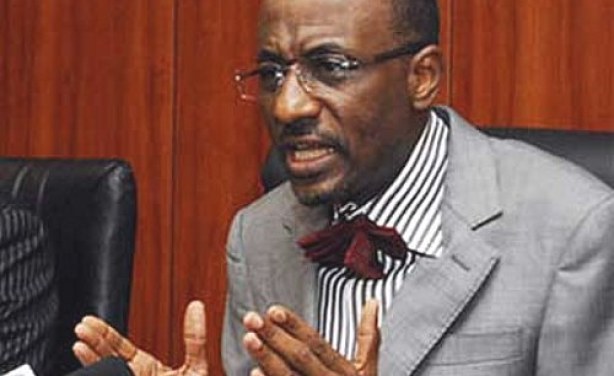Former CBN Governor, HH Muhammadu Sanusi II has said the Nigerian government needs to focus on reforms that enable a better business environment and also called for economic diversification through maximizing technology as means to generate revenue away from crude oil.
Muhammadu Sanusi II disclosed this at the Kadinvest 5.0 Summit in Kaduna on Tuesday morning. Sanusi said the Nigerian government’s role in the economy should be small, both in absolute and relative terms. Sanusi cited Nigeria’s GDP per capita and tax revenue per capita, at $2,400 and $75 respectively, while development spending is just $36 compared to Kenya at $280 tax revenue per capita, and development spending of $280, despite having 90% of Nigeria’s GDP per capita at $2,151.
“Government needs to multiply its tax revenue, the government needs to spend on business environment reforms,” he said.
READ ALSO: Las Vegas Housing Market Continues To Be A Seller’s Market
Solutions for Nigeria:
He said that the diversification made colonial Nigeria an economic success, based on the trading sector and the diversity of Nigeria’s export base, including palm oil, groundnuts, cocoa, tin, hides and cotton, and others. He added that the diversity of export meant Nigeria was less vulnerable to terms of trade shocks driven by one export in particular.
“Nigeria has suffered boom and burst periods due to oil valuations. It affects us in direct and personal ways. The government needs to understand the importance of wrong and adverse economic decisions on the human being,” he said.
Sanusi cited inflation numbers, saying Nigeria ignored inflation numbers of 2%, instead of breaking down the CPI and seeing how it affects millions of people who spend on food from minimum wages and how a 2% inflation growth wipes out earnings.
He compared Nigeria’s growth in the past 40 years with countries similar to countries like Malaysia. He added that Malaysia’s export base has been diversified from commodities to manufactured goods in the past 30 years.
By 1979, Malaysia’s top 2 exports were Crude Rubber and Cork and Wood. By the year 2000, Malaysia’s top 2 exports were Electrical Machinery and Office machines/Automated Data Processing equipment. Malaysia’s GDP per capita grew in the same period from $41 to $4,045. Compared to Nigeria’s GDP per capita, which increased from $345- $2,655 from 1985-2015, but failed to diversify export base as Crude Oil was Nigeria’s top export for the period.
“We were growing, but we did not diversify and that explains the huge level of poverty. It also explains the vulnerability of the economy to shocks,” he said.
Sanusi added that the failure to diversify explains the relativity of Nigeria’s slow pace, compared to Nigeria’s growth for the same period. “We have not moved in all these years. This is the difference between us and Asia, they moved!”
On growth and structural change:
Sanusi made a case for a change of mindset with technology adaptation. He added that the wide usage of smartphones does not mean Nigeria has leapfrogged development, as we are not a producer of technology but primarily, a consumer.
He added that Nigeria is yet to leverage on the investments in the telecoms sector. “Infrastructure in Africa has become increasingly decoupled from tech training. Someone who uses a smartphone to produce a Nollywood movie is producing! We need to invest in human capital to boost technology innovation, the smartphone is a ticket to wealth… Every excuse Nigeria has to not grow, Indonesia and Malaysia had. We need to move away from a consuming attitude( with technology) to production,”
On Power generation for productivity:
“In a low-income environment, income elasticity is far more important than price elasticity. People would pay for electricity if they could use it to earn,” he said. “Look at electricity as an economic resource, look at how much you could make. There is a difference between not earning a thing and earning something.”
He cited how China focuses on two major metrics, which are; the number of employed and the number of those with access to electricity, citing the per capita contribution of electricity to production needed to move people away from poverty.
He encouraged skilled jobs that leverage technology, which would enable growth and also remove the pressure of Oil money on the states.
“Youths need an environment that has been created to give them skills. We need to invest in broadband as an economic resource,” he said citing the importance of skill transfers in developing broadband infrastructure.
On patterns for structural changes:
Sanusi said East Asia has moved from agriculture to manufacturing and later services, majorly from the informal to the formal sector. However, in Nigeria, the bulk of a similar change has been in the informal sector.
“Manufacturing GDP in Africa has fallen from 14% in 1990 to 10.1% today. Formal job creation has been modest. This is partly because of a mistaken view that Africa can simply leapfrog manufacturing to become a service-based economy. We have declining activity, while the rest of the world has increased activity”.
He added that an enlightened industrial policy will translate to meaningful job creation. He concluded that Nigeria needs to link infrastructure development to economic growth. “You have to make sure your projects are linked, you don’t just build a road here, a rail line there, an airport there without knowing how there are going to translate into an economy.”
He also mentioned that Nigeria’s Public Debt has risen, and due to high inflation he cannot see how the CBN can keep expanding its balance sheet. He urged the FG to spend more time creating the environment through reforms that will attract the investments while also fixing the balance sheet.
Source: (Nairametrics)




